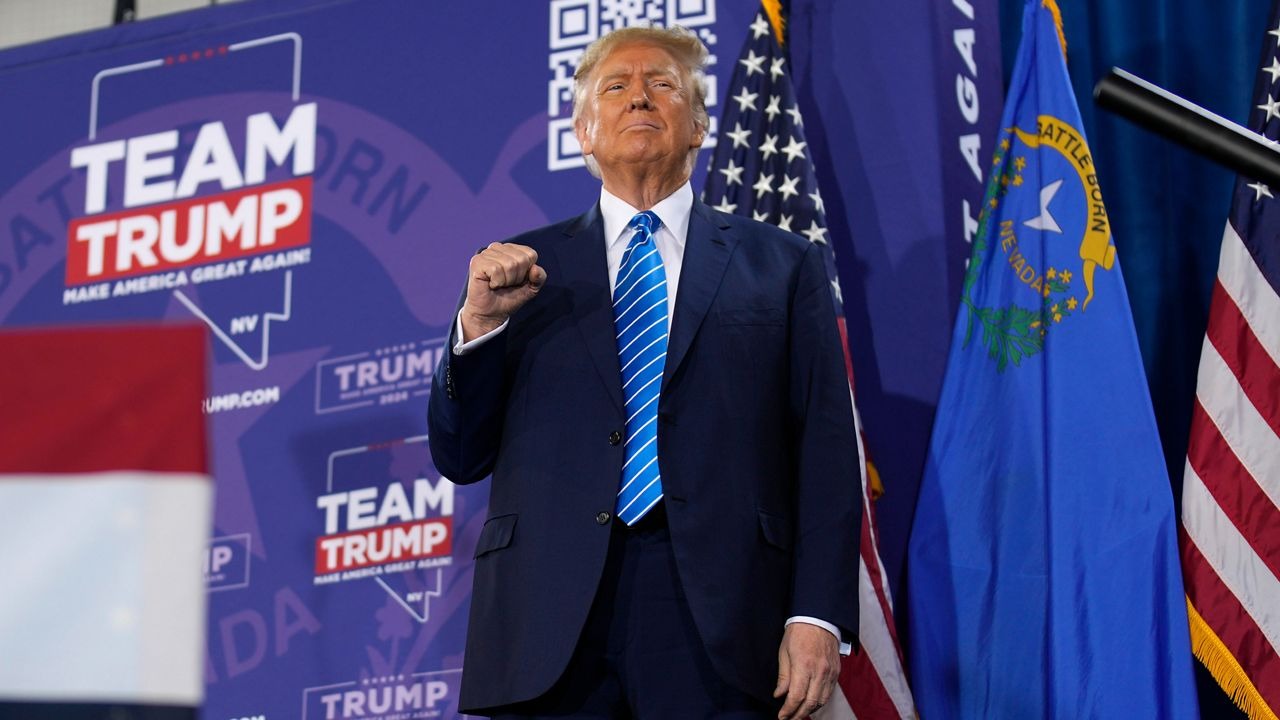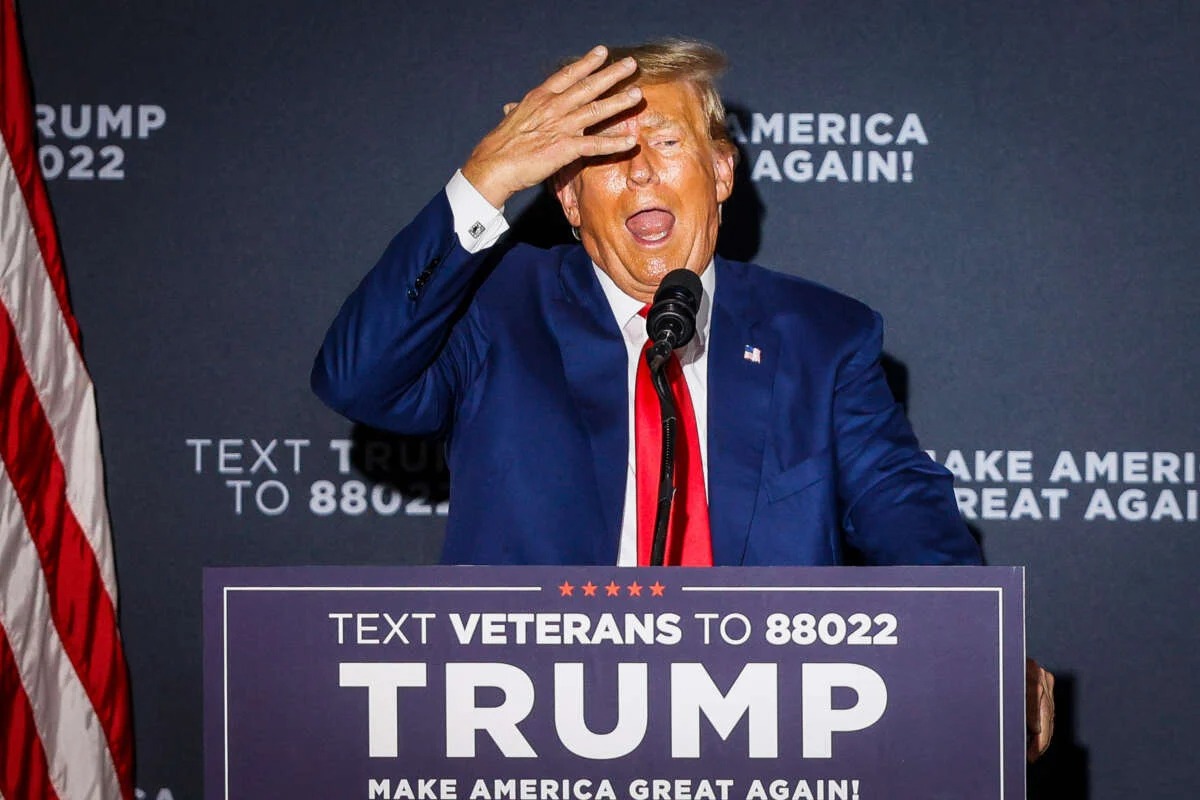In the upcoming Nevada Republican primary election on Tuesday, it appears that Donald Trump is set to face defeat, with Nikki Haley or possibly “none of these” emerging as likely victors.
However, the situation is causing confusion among tens of thousands of Nevada GOP voters who have noticed Trump’s absence from the primary ballots they received in the mail or will encounter in the voting booth.
The intricacy lies in the fact that voters have the option to participate in both the primary and the party-run caucuses, but candidates had to make a choice between the two.

Trump contemplating about victory in Nevada Primary (Credits: NY1)
Nevada Secretary of State Francisco Aguilar acknowledged receiving complaints from friends despite his office’s efforts to inform voters about the dual contests for months.
The office employed various means, including sending out postcards, displaying signs, and engaging with the media to ensure voters were aware of the options.
Aguilar expressed frustration, stating, “It’s one of those things where people aren’t paying attention until now. I don’t know what else we could do.”
Adding to the complexity, Trump has opted to participate in party-run caucuses scheduled for Thursday instead of running in Tuesday’s primary.
While only the caucus results contribute to selecting the state’s 26 Republican National Convention electors, state law still mandates the existence of a primary.
This situation has prompted concerns about the potential impact on voter understanding and participation, as well as the implications for the state’s role in the broader political landscape.
The confusion surrounding Trump’s absence from the primary ballots adds an extra layer of uncertainty to an already intricate electoral process.
As Nevada Republicans prepare for the primary and the subsequent caucuses, the dynamics of candidate choices, coupled with the dual-contest format, highlight the challenges inherent in managing an election system that involves both primaries and caucuses.
The outcome of these events will undoubtedly shape the narrative of the Nevada Republican landscape and contribute to the ongoing conversation about the efficacy and transparency of the electoral process.























